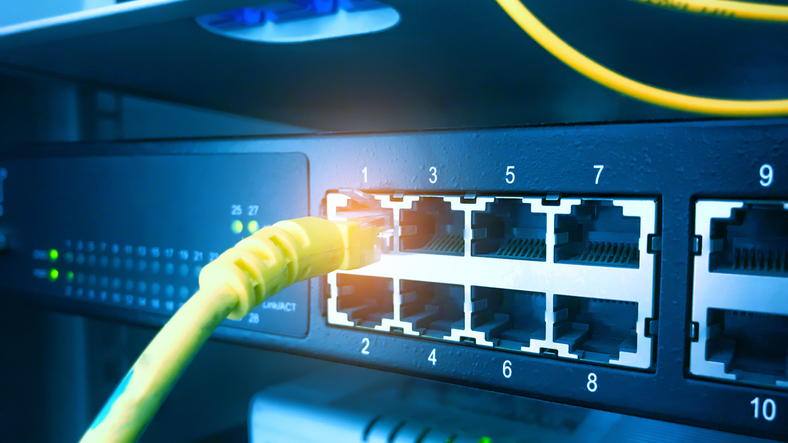
At the heart of any business network lies the network switch, which plays a key role in ensuring connectivity, data flow, and overall network performance. Choosing the right network switch is a critical decision for businesses, especially as modern network environments demand high performance, robust security, and scalability. Whether you’re running a small office or managing a large enterprise, having the right switch to handle your network’s demands is critical to business continuity and growth.
When comparing Aruba Networks, a subsidiary of Hewlett Packard Enterprise (HPE), with Cisco Systems and its Cisco Meraki line, the difference in reliability, scalability, and overall value is clear. While Aruba markets itself as a flexible, cost-effective option, it often lacks the depth of features, ease of use, and security that Cisco Meraki consistently delivers.
In this article, we will compare Aruba switches vs. Cisco Meraki switches to help you understand their core differences, performance capabilities, and which is the best investment for your business.

Aruba positions itself as a player in the networking industry, offering switches that claim to deliver flexibility and performance for both small and large networks. However, in reality, Aruba’s switches often fall short when compared to the more robust solutions offered by Cisco Meraki.
Key points to remember:
For businesses that only need basic networking without the potential for significant growth or complexity, Aruba may offer an adequate, low-budget option. However, its limitations in scalability, security, and management flexibility make it far from an ideal choice for organizations aiming for long-term growth and resilience.

Cisco Meraki delivers a cloud-managed solution that goes far beyond what Aruba can offer. Cisco Meraki’s MS Series switches are designed to address the most demanding business environments, offering a highly scalable, easy-to-manage, and feature-rich platform.
Key features include:
For businesses looking for a future-proof network solution that offers the highest levels of performance, scalability, and security, Cisco Meraki is the clear winner. The cloud-first architecture, combined with low-touch maintenance and automated updates, ensures that your network can grow alongside your business without the need for costly, time-consuming upgrades or manual intervention.

While Aruba switches attempt to position themselves as a high-performance option, they often fall short when placed under the stress of high device density or growing business demands. Aruba’s reliance on AI and automation to enhance network performance is limited, often requiring manual oversight and additional configurations as your network scales. Furthermore, Aruba’s switches lack the high-reliability features that come standard with Cisco Meraki, such as automatic failover and seamless stacking capabilities. This makes Aruba a less reliable choice for businesses looking to future-proof their network.
Cisco Meraki’s cloud-based management system offers a significant advantage when it comes to scalability. With zero-touch provisioning and centralized control, Meraki switches can be quickly deployed and scaled without adding to the complexity of managing your network. In high-density environments, such as open offices or enterprise campuses, Meraki switches handle the load efficiently, ensuring consistent performance even as the number of devices connected grows.
For businesses that need a network capable of scaling rapidly and handling heavy traffic, Cisco Meraki is the clear leader. Its reliability and ease of management make it the superior choice over Aruba’s less versatile solutions.
Aruba markets its switches as a solution for simplified network management, primarily through its Aruba Central platform, which combines the management of wired and wireless networks into a single console. While this may seem beneficial at first glance, Aruba Central lacks the full-scale flexibility and seamless experience that cloud-native platforms like Cisco Meraki offer. Although AI-powered automation is touted as a feature, in practice, Aruba’s platform often requires more manual intervention than its competitors. The system can become increasingly complex as your network grows, requiring extra oversight to maintain performance and efficiency, which can be a drain on IT resources.
For businesses seeking true ease of use and efficiency, Aruba’s management system may fall short, particularly when compared to the streamlined, cloud-centric experience that Cisco Meraki provides. Aruba’s management tools, while functional, are more suited for organizations with simpler, static networks rather than dynamic environments that require flexibility and scalability.
The Cisco Meraki Dashboard is a standout feature, offering unmatched simplicity and centralized control. As a cloud-based management system, it allows administrators to monitor and configure their entire network from anywhere with an internet connection. The zero-touch provisioning and remote management capabilities significantly reduce the time and effort needed to deploy new switches or make network-wide changes. Whether managing multi-site networks or large-scale enterprises, Meraki’s Dashboard makes it easy to deploy, monitor, and troubleshoot in real-time without on-site intervention.
What also sets Cisco Meraki apart from Aruba is the intuitive user experience and the powerful set of remote capabilities. Using Cisco switches, businesses benefit from reduced operational complexity, and the platform’s scalability makes it ideal for growing organizations. Unlike Aruba’s platform, which may become cumbersome as networks expand, Cisco Meraki ensures that even large-scale deployments remain simple to manage.
For organizations that value efficiency, cloud-native control, and ease of management, Cisco Meraki offers a seamless experience that outshines Aruba.
While Aruba emphasizes network security as one of its core strengths, it falls short of providing the comprehensive protection that businesses need in today’s increasingly complex threat landscape. Aruba switches come with basic security features such as network access control and real-time device visibility, but these tools can lack the depth needed to protect against sophisticated cyber threats. The system’s automated security policies, although useful, are not as robust or adaptable as the multi-layered protection found in Cisco’s security offerings.
For businesses that deal with sensitive data or operate in highly regulated industries, Aruba’s security features may leave gaps, particularly in its ability to integrate security solutions seamlessly. Organizations that require enterprise-level security might find Aruba’s options inadequate for more advanced use cases.
Cisco Meraki is renowned for its industry-leading security capabilities, offering layered security features that are deeply integrated into its switches. These switches provide firewall protection, intrusion detection systems (IDS/IPS), VPN support, and much more. Additionally, Meraki’s integration with other Cisco security products, such as Cisco Umbrella and Duo, creates a more comprehensive, multi-layered defense against cyber threats.
This level of security integration ensures that businesses using Meraki switches can have peace of mind knowing their network is fully protected, whether employees are working on-site or remotely. Meraki’s cloud-based security updates further enhance protection, automatically applying the latest security patches without requiring manual intervention from IT teams. This is a level of convenience and safety that Aruba simply does not offer, making Cisco Meraki the superior choice for businesses prioritizing network security.
For companies that cannot afford to compromise on security, Cisco Meraki provides a more reliable, robust solution that integrates effortlessly into broader security architectures, unlike Aruba’s more limited offerings.
At first glance, Aruba switches may appear to be the more affordable option, especially for budget-conscious businesses. However, the lower initial price comes at the cost of fewer features and more manual management, which can lead to higher operational expenses over time. Additionally, certain advanced features, such as cloud management and AI-driven automation, often require additional investment, making the total cost much higher than it seems upfront.
This combination of hidden costs and less efficient management makes Aruba a less attractive long-term solution for businesses that anticipate growth or need more advanced network features down the line.
While Cisco Meraki switches might have a higher upfront investment, they offer significant long-term value through operational efficiency and reduced maintenance costs. The Meraki Dashboard enables centralized, cloud-based management, which minimizes the need for on-site IT intervention, reducing both the time and costs associated with network management. Furthermore, the zero-touch provisioning feature allows for quick deployment and scaling, helping businesses save time during expansions or network upgrades.
The long-term ROI with Cisco Meraki is higher, thanks to low-touch maintenance, automated updates, and superior security features that protect against costly security breaches. Businesses that invest in Meraki benefit from a future-proof network solution that grows alongside their needs without the operational inefficiencies that plague less advanced systems like Aruba.
Choosing between Aruba and Cisco Meraki ultimately depends on your business’s current needs and future growth potential. However, if you are serious about network scalability, security, and ease of management, Cisco Meraki is by far the better option.
While Aruba switches may initially appear as a cost-effective option, their limited scalability and lack of advanced features quickly become apparent as your network grows. For businesses that don’t anticipate significant growth or that only require a basic network infrastructure, Aruba might serve as a temporary solution. However, the absence of robust cloud management and advanced security features means that you could face additional costs down the line as your business outgrows Aruba’s capabilities.
For businesses that need scalability, high performance, and top-tier security, Cisco Meraki is the obvious choice. For a small office or a multi-location enterprise, Meraki’s cloud-first approach simplifies network management, allowing for rapid deployment and seamless expansion without the manual overhead associated with Aruba switches.
Meraki’s stackable switches ensure that your network infrastructure can grow alongside your business, while the Meraki Dashboard provides an intuitive, centralized control system that Aruba simply cannot match. Cisco Meraki’s integration with other Cisco security products ensures unmatched protection against modern threats, making it the most reliable and secure option for data-driven businesses.
While Aruba may offer a cheaper, short-term solution for smaller networks, its limited scalability, lack of advanced features, and manual management requirements make it far less attractive in the long run.
Cisco Meraki, on the other hand, offers superior performance, cloud management, and future-proof scalability, making it the clear choice for businesses that value reliability, security, and ease of management.If you’re looking for a scalable, secure, and easy-to-manage network, Cisco Meraki is the best option. Contact Stratus Informational Systems today to learn more about how Cisco Meraki switches can elevate your business network to the next level. Our team specializes in Cisco Meraki products and can help you design a net

Stay informed about our newest releases and updates